The Johor state election saw newcomers Muda laying claim to a number of seats and while DAP and Amanah sorted it out with the party, there was a bit of a stumbling block to cooperation with PKR which saw both parties field a candidate each in Larkin during the polls.
Some PKR insiders felt that while DAP went for heavily Chinese seats and Amanah’s seats were all Malay, PKR and Muda were both going for the same “mixed” seats, suggesting that the two parties may clash in the future.
Furthermore, Muda chief Syed Saddiq Syed Abdul Rahman was viewed by some as being too close to ex-premier Dr Mahathir Mohamad, who is widely mistrusted by the PKR rank and file following his role in bringing down the Pakatan Harapan government through courting Umno defectors and PAS support while trying to bypass the handover agreement with PKR president Anwar Ibrahim.
Nonetheless, while there were some prickly moments, most of the PKR Youth leaders we spoke to said they welcomed the addition of Muda and hoped that the friendly fire would lead to healthy competition.
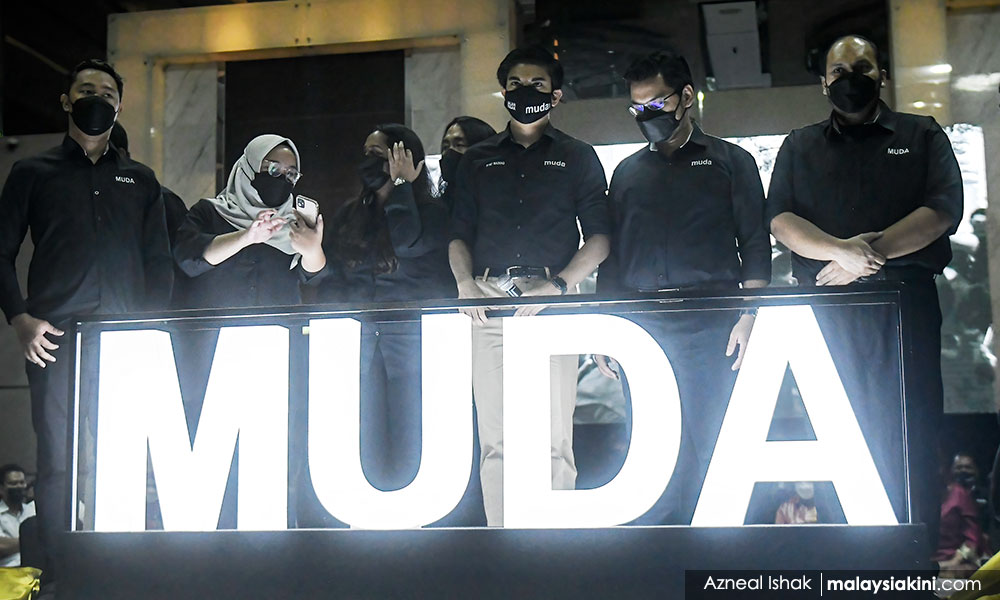
We spoke to Johor PKR youth chief R Yuneswaran, Young Professionals Bureau chairperson Jhen Pei Seah, women’s wing communications director Loh Ker Chean, lawyer and party member Asheeq Ali Sethi Alivi, student wing chairperson Mohammad Syamil Luthfi, party member Nabil Halimi, Negeri Sembilan Young Women chief Wan Zulaika Abd Kahar, Malacca Young Women chief Farzana Hayani, and Federal Territory Young Women chief Anetha Pillai for their views.
How do you view the growth of Muda? Is it a threat or something positive?
Yuneswaran: PKR does not see Muda as a threat on the political scene. The pool of young voters and supporters is too big and I believe that we have our own advantages as we have divisions and branches at all levels, unlike Muda, which may not have grassroots strength but excel in social media campaigns.
Loh: More political parties mean more competition, and good competition is healthy for democracy. If a new political party is able to attract more people to participate in the democratic process, I see it as positive. When there is a threat, there is an opportunity too. We need more platforms to mainstream diversity and inclusive politics to achieve the greater good for the rakyat.
Jhen: As we know, Malaysia has always been lacking political enlightenment via formal education. In other words, Malaysians often need some form of trigger or inspiration to start paying attention to politics. So, if Muda is able to become the catalyst or inspiration to embark youths into paying more attention to politics and policymaking, or even as simple as exercising their rights to vote, I think it’s definitely something positive.
Farzana: I have always admired young people who have the courage to be involved in politics, and I respect whatever choice or preference they choose to be involved in terms of any political parties. Although I have to admit, I was a bit surprised when Muda decided not to contest the difficult seats (in the Johor elections).
Syamil: At first I thought it would be something positive because they share some similar views with us. However, some recent developments in our political scenario show that they are more interested in taking the easiest path to achieve their dream. That’s not something to be proud of.
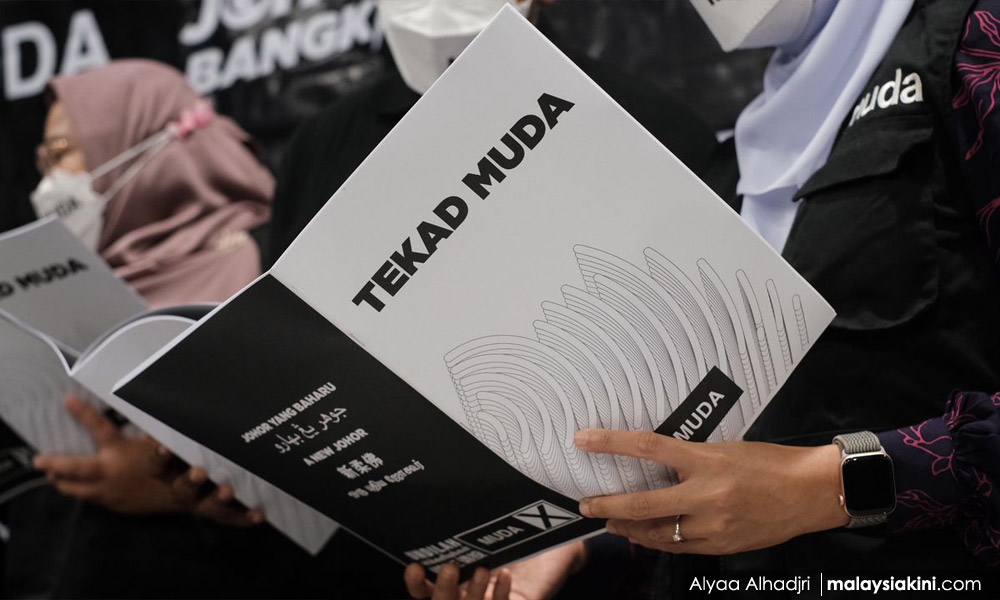
Nabil: I view them as a disruptive force. A new party but still looking for the idealism that they can bring forward. It is something positive if they are sincere in giving a new breath to the political landscape of Malaysia. I believe if they are sincere in being friends of Harapan, they should really present ‘semangat setiakawan’ to the coalition.
Anetha: Muda has given some impact to youth in our country but I’m unsure of that need when we already have youth wings in other parties like PKR and even Umno. If Muda is as good as they claimed, we should be aware of their vision and missions for the country - which at this point, we aren’t.
Moreover, Muda claimed themselves to be supportive of the country’s youth leaders but, in Malacca, when Harapan had placed youth candidates, they were not even there to show support for the principles that they hold. They just boycotted and never came in to support any young candidates.
PKR won 1 out of the 20 seats contested in the Johor elections. Similarly, Muda won one out of seven seats despite being officially registered for only three months. What are your thoughts about these results, and how do you propose PKR can bounce back for GE15?
Jhen: First of all, I think we need to stop simplifying the problems that we are facing now and really look into identifying our weaknesses. If we look closer at the data, it actually shows that Harapan as a whole is suffering from a massive drop of votes across all seats. In other words, I would say, Muda or even DAP did not do better than us.
All Harapan and pro-Harapan parties are relying solely on their traditional support base. Hence, when we are lacking a feel-good factor or narratives which are appealing and relevant enough to voters, we lose support. In addition, the composition of the seats contested is definitely a deciding factor for the difference in the support that we have gotten.
For instance, DAP won Perling with a majority of 19,533 votes in GE15. However, the majority has reduced to only 3,347 votes, a more than 16,000 difference. Similarly, Harapan won Puteri Wangsa in the year 2018 with a majority of 24,959 votes, and Muda won by a mere 7,114 votes this time. It’s a drastic cut of close to 18,000 votes. On the other hand, PKR did not have any “safe seats” during the election, like Perling or Puteri Wangsa, thus we can’t cushion any vote loss of more than 10,000. However, we are still lucky to have won Bukit Batu, although we also lost 9,920 votes from the previous majority.
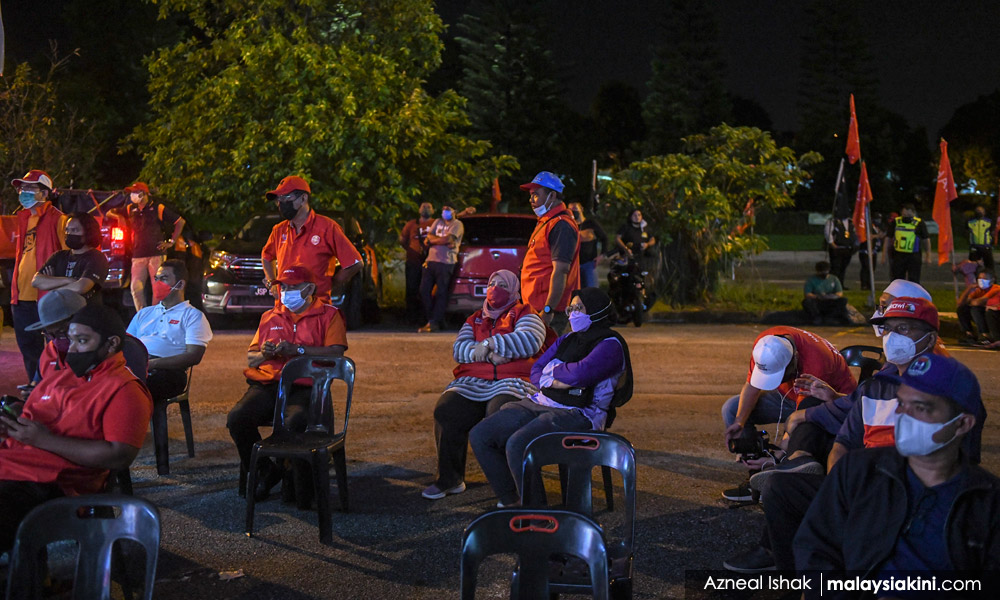
Moving forward, I think Harapan has to acknowledge that this is a common problem that the whole coalition is facing and we have to deal with it collectively. We should definitely stop pointing fingers at each other and blaming (it on) irrelevant stuff, as what the voters want is a stronger and united Harapan instead.
Syamil: There have been a lot of racial issues played by the then-opposition, which made some Malay voters sceptical of Harapan. But the leaders and party members are playing their part to explain and give clarification to the people on certain issues that occurred back then. I would say a scattered opposition is another contributing factor if we look at the data. The number of voters who reject BN is still particularly high. We fought for 20 years before claiming victory in Putrajaya. I guess this too will take time. But the fight continues and we won't give up.
Muda’s victory is one of the examples of how the opposition would benefit if we worked together without clashing in the seat allocation.
What happened in Larkin was a wrong move and it portrayed a shambolic opposition to the voters. This could have been avoided. But now, things have passed, I believe we will all learn from what went wrong and work harder.
What are your hopes for the future - with regard to both the country and PKR?
Yuneswaran: My hope is to see PKR regain the mandate and become the federal government in the future or the upcoming general election. I would like to see a corruption-free country, a stable and progressive economy, racial harmony, more job opportunities based on merits, enhanced quality of education, and more young leaders to be involved in politics and administrate the government. It’s time to look to the future, time to strategise, refocus and rebuild Malaysia.
Nabil: I would really love to see a Malaysia that puts the rakyat first. A harmonious country with stable politics and economy and great leaders who serve the country to bring about new friendly policies to the rakyat.
For PKR, it is a struggle after (the) betrayal by some prominent leaders within the party. I believe it is time for us to rejuvenate, and I am hopeful that PKR will be able to become the party that again fights for the rakyat and serves the rakyat to the best of their interest. I hope for it to become the strongest multi-racial party that will draw a new landscape to Malaysian politics.
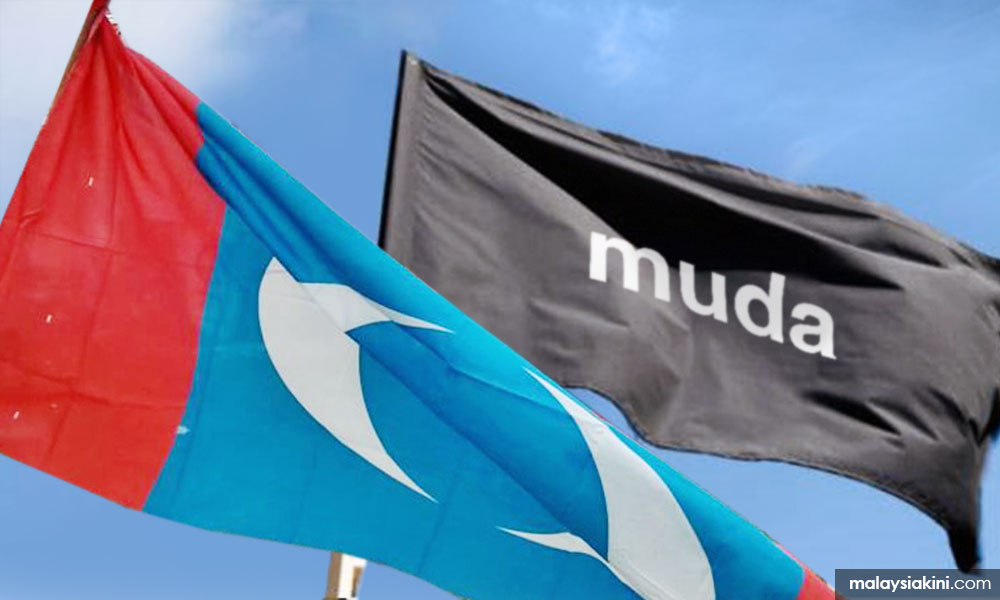
Anetha: PKR is one party that continues to improve and move forward despite all the hard times we faced, we have never compromised on our principles regardless of what situation. Therefore, I believe that one day our country will be an actual democratic country. All I hope for is a stable political environment, a clean system in the legislature and to have a gender-responsive policy that mirrors today's situation. I also would like to see more women and youth leaders.
Asheeq: I hope this country moves beyond racial politics. Malaysians deserve to live a life with dignity. I hope PKR will lead the way to the victory of Harapan in GE15 and I wish to see PKR being the first choice for every Malaysian regardless of race or religion.
This is part three of a three-part series on PKR's new faces.
Part 1: PKR Youth - crunch time for new generation
Part 2: PKR youths don’t blame Anwar for party’s diminishing popularity
- Mkini



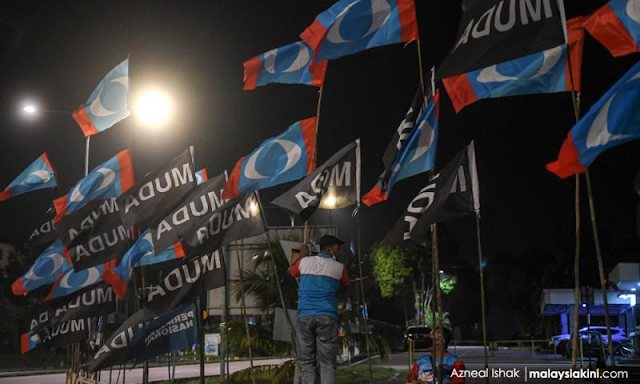
No comments:
Post a Comment
Note: Only a member of this blog may post a comment.